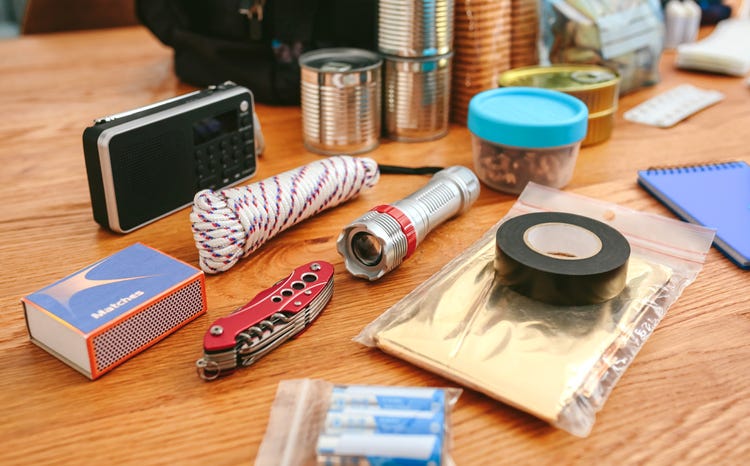
It doesn't matter if you live on the coast or in the middle of the country, experts say everyone should take time to prepare ahead of the upcoming hurricane season, which could bring record producing storms.
Obviously, everyone won't need to be prepared for a hurricane to hit their town. But severe weather can strike anywhere at any time, so experts suggest everyone have a disaster plan in place.
The eastern Pacific hurricane season starts on May 15 and the Atlantic hurricane season starts on June 1, according to the National Hurricane Center. Both seasons end on November 30.
Weather researchers say 2022 will be the seventh straight year that the number of hurricanes is expected to rise above average levels. It could rival that of 2021, the third busiest hurricane season on record with 21 named storms, as forecasters are expecting at least 19 named storms.
"It only takes one storm in your area to make it an active hurricane season for you. Even if it's a well below-average season, you should still be ready," climate specialist Alex Desrosiers told CBS News.
Experts warn that recent storms intensify quicker and last longer than in previous years, which gives people less time to act in case of emergency.
"These storms are getting worse. We're going to have less time to warn people," FEMA administrator Deanne Criswell said during a recent hurricane conference in Orlando, according to CBS.
Those in hurricane warning areas should practice their evacuation route inland, have a backup plan in case of road closures and know the locations of official shelters. Even if you don't live in an area threatened by hurricanes, you should have a safe evacuation route should a natural disaster or severe weather strike.
While those under threat of hurricanes should also have some plywood and other materials on hand to protect their homes if necessary, everyone can protect their property from storm damage by clearing loose and clogged rain gutters and downspouts, and trimming trees and shrubbery. Homeowners should also review their insurance policies.
No matter where you live, everyone should have emergency equipment and supplies including flashlights, a first aid kit, battery-powered radio with extra batteries, drinking water and non-perishable food.
LISTEN on the Audacy App
Sign Up and Follow Audacy
Facebook | Twitter | Instagram